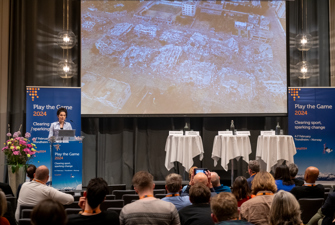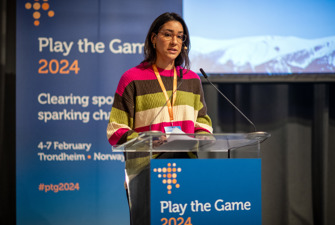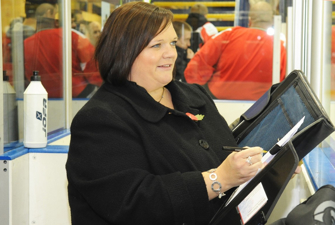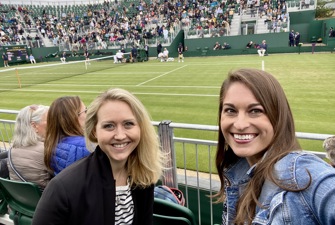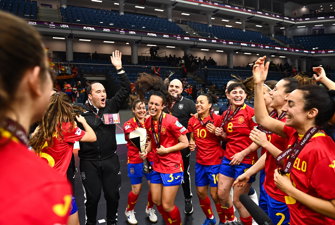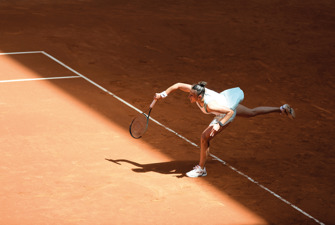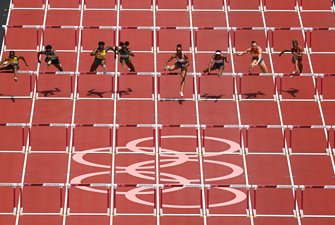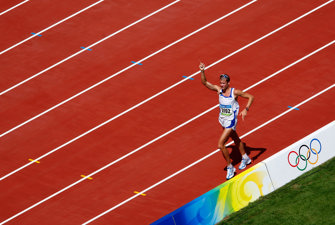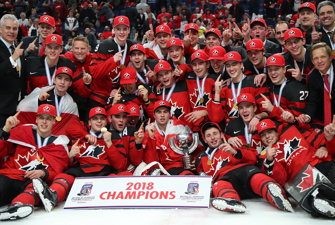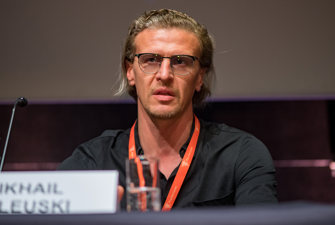Mixed-blood athletes challenge old myths in Japan
The upcoming 2020 Olympic Games in Tokyo has raised questions about national identity and belonging among the Japanese population. Especially tennis player Naomi Osaka, who is daughter of a Japanese mother and a Haitian father, has been subject to some surviving racism in Japan, Asger Røjle Christensen reports from the Japanese capital.
Next year, Tokyo will host the Olympic Games. It has forced the emergence of a new generation of hopeful Japanese athletes with medal chances, and it has intensified the media’s focus on these young people.
It is noteworthy that a significant number of these new stars on the Japanese sports arena are "hafu", i.e. one of their parents is Japanese and the other is something else. Japanese sports fans have had to get used to this new phenomenon, especially when the athletes have dark skin.
The case of Japanese-Haitian Naomi Osaka
The most famous of the new stars is tennis player Naomi Osaka, who earlier this year was number one in the women's world ranking. Born in Japan to a Japanese mother and Haitian father, Osaka moved to the United States at the age of three with her family.
Nevertheless, the Japanese media and the Japanese public follow her struggles all over the world very closely with live transmissions and enthusiastic commentary when it goes well. Even the Prime Minister of Japan, Shinzo Abe, has congratulated her.
But the media coverage and public reactions have uncovered some surviving racism in the Japanese society, estimates lawyer Taisuke Matsumoto, who has been a member of the commission under the Japan National Sports Council that has been working to improve the country's sports governance.
“There are still a certain number of people who have discriminatory sentiments. The older generation, which was born before Japan's defeat in World War II, was educated to look at foreigners in a discriminatory manner. So, in recent days this generation has had some difficulty in accepting some of the top athletes,” he explains.
This is not to say that a majority of the Japanese population dislikes Naomi Osaka and other hafu stars on Japan's sports arena. For many Japanese people, the fact that she can hardly say a sentence in proper Japanese has, in fact, become part of her undeniable charm.
But it does make it much harder for many Japanese sports fans and other athletes to relate to her than to full-blooded Japanese athletes or, for that matter, hafu athletes such as Japanese-Beninese basketball player Rui Hachimura and Japanese-Ghanaian track and field sprinter Abdul Hakim Sani Brown.
Both grew up in Japan, have attended Japanese schools and speak fluent Japanese, and they behave humbly and respectfully on the television screens as Japanese sports stars are expected to do.
“To be honest, we feel a bit of distance from her (Osaka, ed.), because she is so physically different. She grew up in a different place and doesn’t speak as much Japanese”, another of Japan's professional tennis players, Nao Hibino, told The New York Times Magazine. "It’s not like Kei (Nishikori, ed.), who is a pure Japanese player."
Kei Nishikori is Japan's biggest tennis name on the men’s stage. He is a thoroughbred Japanese and speaks Japanese but has lived and trained in the United States since he was a teenager.
National glory trumps blood and race
The mixed emotions of the Japanese public recently came to light in the most poignant way, when a comedian duo from Osaka, the city where Naomi Osaka was born and where she has won her first title on Japanese soil this year, found it funny to perform with a show where they said she needed bleach on her face. A show for which they publicly had to apologise.
In the past, Naomi Osaka’s main sponsor, the noodle maker Nissin, became the target of a fierce media feud as they, in big ads across Japan, made her skin brighter than it really is. In the end, they were forced to withdraw the ad.
Naomi Osaka herself took this kind of obvious insult in stride.
"They have apologised," she says about Nissin. "I'm dark, it's pretty clear to see".
The fact that mixed feelings exist and make it more difficult for the Japanese population to relate to Naomi Osaka than to other hafu stars does not mean that they celebrate her victories less.
“I think it's fair to say that the Japanese public is willing to accept anyone who brings glory to the nation – unless the glory on the field or track or court or in the ice rink is stained by a behaviour that runs counter to standard expectations of demeanour in a particular sport,” says Professor Wolfram Manzenreiter of East Asian Studies at Vienna University, who has been studying the Japanese sports world for many years.
"My argument hence would be, rather than race or blood, it is the match of role performance in the sport and in the public and role expectations that gains acceptance, support or even fandom for an athlete."
For that very reason, there is also a tendency, as both Taisuke Morimoto and Wolfram Manzenreiter remind us, that the worst problems of discrimination hardly occur in the most visible arenas of sport, but on the contrary in schools and sports fields where ordinary children and young people grow up practising different kinds of sports.
"I have heard about many discrimination cases on grassroots levels from hafu baseball players or football players," says Taisuke Morimoto.
It is entirely different when possible Olympic medals are at stake.
“I have never heard of overt criticism of Japan-born stars such as Rui Hachimura and Abdul Hakim Sani Brown,” writes Elisa Pellicano, a PhD researcher at Hokkaido University, who is closely following the Olympic preparations.
“However, this shouldn't be taken as a reason to understate the influence of one's skin colour in Japanese society. To begin with, both running and basketball are sports dominated by black athletes, so it is easy for Japanese fans to imagine the two taking up a major role in those sports.”
Most recently, the Japanese national soccer team player Musashi Suzuki, who was born in Jamaica where his father comes from, has been subjected to discriminatory attacks on social media due to his dark complexion, which the Japanese Football Federation has been very quick to clamp down upon.
Musashi Suzuki writes himself in an update – wisely and offensively at the same time – that "If it wasn't for my father's blood, I wouldn't have been able to become a member of the Japan national team. I am grateful to be a half-Japanese, and to be able to grow up in this wonderful country.”
Tokyo 2020 challenges blood myth
The sports world is rapidly globalising these years, and Japan is probably not any better or worse than many other countries. But the country’s capital, Tokyo, will be hosting the Olympics next year, so there is extra focus right now on how Japan handles these issues in public. Japan itelf is certainly very much aware of this extra focus.
"Japan has a very tenuous relationship with race, as do many other societies," notes media and sports scientist Michael Plugh of the Manhattan College in New York.
“Traditional national and ethnic identities often rely on something like a blood myth, which defines belonging in a very narrow and exclusive way. This is true in Japan and is compounded by the notion of ‘nihonjinron,’ a cultural construct that defines Japan as mysterious and impenetrable to outsiders. Between blood and culture, the more conservative corners of Japanese society have a rationale for excluding foreigners and the ‘impurities’ they bring with them. There is no more powerful symbol of that impurity than the so-called mixing of blood. For generations, the ‘mixed blood’ members of Japanese society have been shunned or held at arms’ length, and particularly the people of darker complexion.”
But it doesn't have to stay that way.
“It’s my view that hyper-globalisation, and in particular the dimensions of migration and media, has accelerated the public recognition of these marginalised sectors. Sports and entertainment are popular avenues for cultural renegotiation, because they are merit-based, in theory, and so are our most dynamic arenas of change. The more conservative and regressive areas of society have a hard time contending with this rapid shift in identification as younger people begin to internalise the images on their screens, it will be difficult to maintain the old myths of blood and culture for very long”.
So, although Naomi Osaka is very careful to concentrate on playing tennis and does not compromise herself with critical or political statements about anything, she may well prove to be an important bricklayer for wider change in Japanese society. "Naomi Osaka is an icon – perhaps a reluctant one – but is taking huge strides in the future on behalf of a new orientation for Japanese stories of belonging," says Michael Plugh.

























